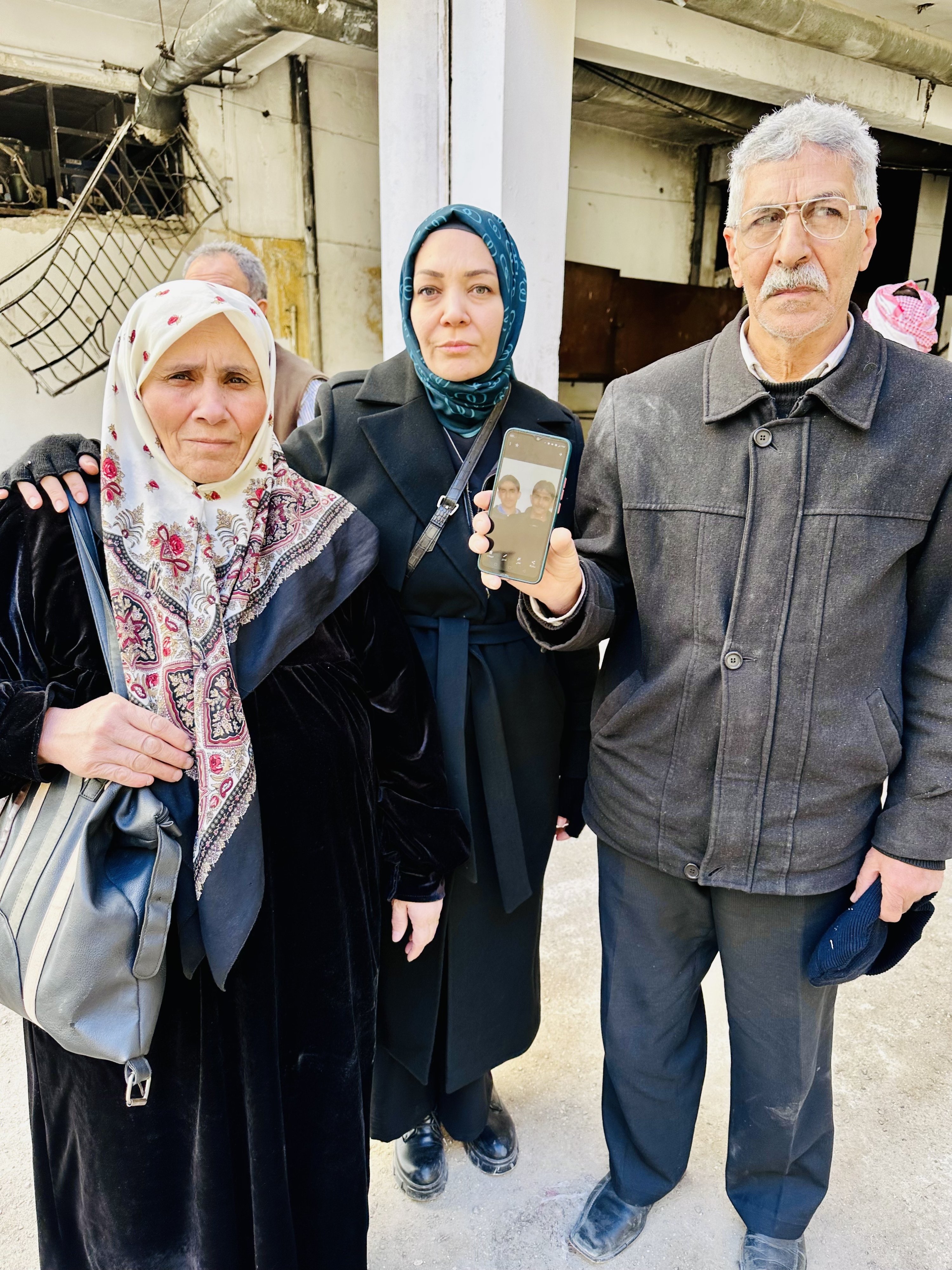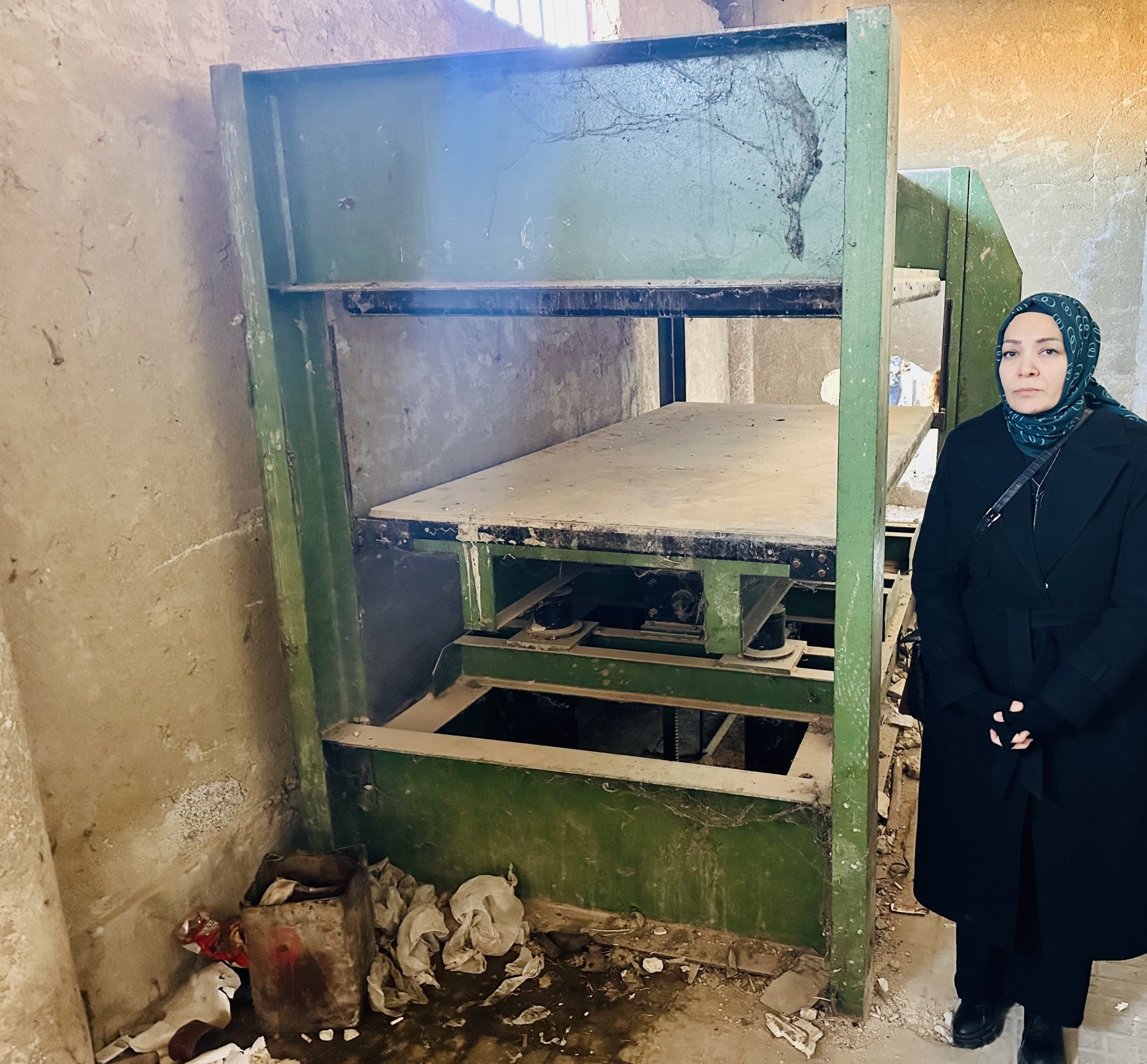© Turkuvaz Haberleşme ve Yayıncılık 2024
At the entrance, under the three-star flag representing free Syria, it reads: “Sednaya prison, the human slaughterhouse: We will not forget, we will not forgive.”
Parents are carrying photographs of their children with only a little hope. Some go inside the narrow holes they dug underground and hit the bars with sticks to see if they hear a sound. The others search thousands of scattered documents out of the mud and read them to see if they can find a trace of their loved ones. Posters of the missing are hanging on the walls. People try to find the names of their missing relatives by examining the visitation book that is casually placed on a cart at the entrance.
Walls reek of the smell of death. Windowless cells and belongings are left behind by prisoners who ran without looking back when they learned they were free. Some mattresses are in the corridors. It is said that they were taken out of cells to use while raping female inmates. The smell of blood mingles with the smell of urine on the lowest floors, where the sun never penetrates.
An old couple approaches from up ahead, holding a photograph. Both of their sons are missing; they don't even know if they were brought to Sednaya. One was 18, the other 21 when they were taken. The parents have been looking for them for 13 years. “We heard that the Turks are coming to search. Is it true?” they ask us. The next day, the Disaster and Emergency Management Authority (AFAD) started search and rescue operations in Sednaya with a team of 120 people.


Much can be said about our share in the Syrian victory and what we have gained, but if your country can be the light of hope in the eyes of a desperate mother, you have won.
The two hours I spent in Sednaya prison were one of the most significant traumas of my life. When I stepped out of the room with the press machine where the corpses were placed to be destroyed, I realized that we could not even imagine what hundreds of thousands of people who were brought there as prisoners went through.
Sednaya is a place of exception, a killing machine, a place without rules, without order, where the only rulers are the guards who leave human beings at the mercy of human beings in the most brutal way. Just yesterday, two more mass graves for 75,000 people were discovered in Damascus. The Syrian woman who cried out to the United Nations delegation that came to Sednaya, “You don't need to come anymore. They are all dead,” exposing the farce we call “international order” on behalf of all of us.
If Agamben had visited Sednaya, he would have rewritten “Homo Sacer”; Foucault would have rewritten “The Birth of the Prison.” As Muslims who have seen Sednaya, we are responsible for writing our own story in a way that will not allow the memory of Sednaya to fade. And at the beginning, we will write this: "We will not forget. We will not forgive!"
